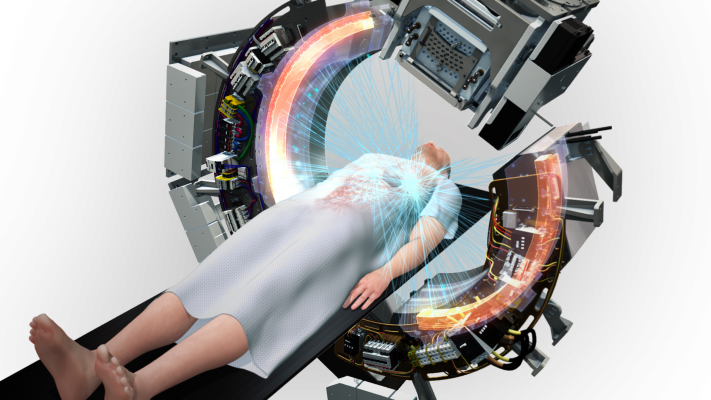6 Easy Facts About Arogyajivan Medical Tourism For Oncology Shown
6 Easy Facts About Arogyajivan Medical Tourism For Oncology Shown
Blog Article
Our Arogyajivan Medical Tourism For Oncology Diaries
Table of ContentsWhat Does Arogyajivan Medical Tourism For Oncology Mean?6 Simple Techniques For Arogyajivan Medical Tourism For OncologyThe smart Trick of Arogyajivan Medical Tourism For Oncology That Nobody is DiscussingEverything about Arogyajivan Medical Tourism For OncologyRumored Buzz on Arogyajivan Medical Tourism For OncologyLittle Known Questions About Arogyajivan Medical Tourism For Oncology.How Arogyajivan Medical Tourism For Oncology can Save You Time, Stress, and Money.
If you have cancer, your health treatment copyright will recommend several methods to treat the condition. One of the most usual therapies are surgery, radiation treatment, and radiation. Various other choices consist of targeted therapy, immunotherapy, laser, hormone therapy, and others. Below is a review of the various therapies for cancer and how they work.Cancer cells expand and divide faster than normal cells in the body. Because radiation is most damaging to swiftly growing cells, radiation treatment damages cancer cells a lot more than normal cells. It uses substances made by the body or in a lab to assist the immune system job harder or in an extra targeted method to fight cancer cells.
Some have contaminants or contaminated substances connected to them. Immunotherapy is offered by IV. Hormone therapy is made use of to deal with cancers cells that are sustained by hormonal agents, such as breast, prostate, and ovarian cancers. It uses surgery, or medicines to stop or obstruct the body's all-natural hormones. This aids reduce the development of cancer cells.
Thin fibers at the end of the tube route the light at the cancer cells. Lasers are most usually used with other kinds of cancer cells therapy such as radiation and chemotherapy.
Arogyajivan Medical Tourism For Oncology for Beginners

An oncologist is a cancer physician. These doctor specialize in oncology the branch of medicine that concentrates on diagnosing, hosting and treating cancer cells. AdvertisementCleveland Facility is a charitable scholastic clinical center. Advertising and marketing on our website aids support our goal. We do not recommend non-Cleveland Center items or services. A visit to an oncologist offers you an opportunity to talk with an expert who recognizes what you're experiencing.
They're all set to help, and they'll stroll with you every step of the method. Oncologists can: Run evaluates to diagnose cancerOffer a 2nd opinion on a previous diagnosisIdentify therapy optionsDiscuss each alternative's benefits and side effectsOversee cancer cells treatmentManage post-treatment treatment Seeing an oncologist does not necessarily mean you have cancer cells. An oncologist obtains entailed if you have signs that could be cancer cells.
How Arogyajivan Medical Tourism For Oncology can Save You Time, Stress, and Money.
Many cancers are much more treatable in the very early stages. Cancer cells is a complex condition.
Radiation can diminish tumors prior to surgical procedure or eliminate remaining cancer cells after surgery. You could have radiation as a stand-alone treatment or in mix with various other therapies.
Our Arogyajivan Medical Tourism For Oncology PDFs
Do I have cancer? For how long have I had it? What will my life look like now? If these are the concerns competing via your mind, you're not the only one. Your oncologist is below to help you browse these feelings. Throughout your very first visit, your oncologist will: Ask you to explain your signs and symptoms in detailDo a checkupTestimonial your clinical documents, including family members background and any previous or present health conditionsRun any required examinations (like imaging examinations or laboratory job) for more information about your symptomsDetermine whether you require a biopsyWhen your oncologist collects the information they need, they'll: Review the results of your testsSend their findings to the doctor who referred youTell you whether you have cancer cells and if so, what kindTalk to you concerning various therapy optionsListen to your worries and anxietiesGive you resources that can offer support and extra informationYour initially oncology go to may occupy to 3 hours.
Oncology is the study of cancer. Experts trained in oncology give treatment for people that are at danger for cancer cells, being dealt with for cancer, and living with cancer cells after treatment.

Arogyajivan Medical Tourism For Oncology Things To Know Before You Get This
Some kinds of cancer cells take place most often in these younger age groups. When these kinds of cancer sometimes click site happen in grownups, those adult clients may choose to work with a pediatric oncologist.

Sometimes, a surgical oncologist could be the very first expert an individual sees. Occasionally when cancer cells is believed yet not detected, an oncologist could also be entailed. Some people with blood conditions that may or may not be cancerous may be referred to a hematologist oncologist. Lots of news people will continue seeing their oncologist for follow-up visits to look for signs of cancer returning and to handle any type of negative effects from therapy.
Arogyajivan Medical Tourism For Oncology Can Be Fun For Everyone
If you have a cancer cells diagnosis and are weighing your treatment alternatives, think about joining a clinical test. They may seem intimidating at first, clinical tests can be extremely advantageous no matter what kind or stage of cancer cells you have. Benjamin Levy, M.D., medical supervisor of the Johns Hopkins Kimmel Cancer Cells Facility at Sibley Memorial Health center and a lung cancer scientist, clarifies several of the reasons to join a clinical test.
Report this page